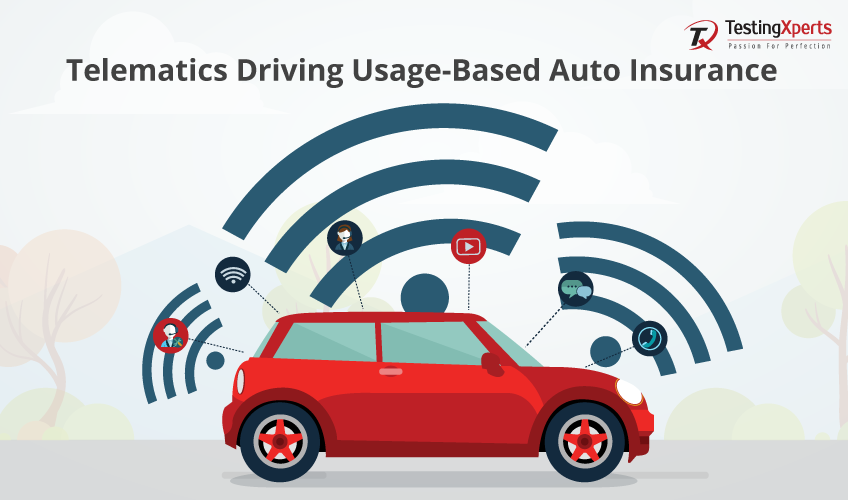Have you ever wanted to get real-time feedback on your driving and lower your auto insurance premiums? Then you should explore the possibilities offered by usage-based auto insurance (UBI). UBI provides a more personalized approach to auto insurance, offering drivers the ability to pay for coverage based on their driving habits and be rewarded for their safe driving. In this article, we’ll explain what usage-based auto insurance is, the different types of UBI programs, the benefits of UBI, how UBI works, some of the UBI providers, the factors that affect UBI premiums, the risks of UBI, and how to get the best UBI coverage. With UBI, drivers can save money while staying safe on the roads. Read on to learn more about usage-based auto insurance.
What is Usage-based Auto Insurance?

Usage-based auto insurance is an innovative approach to calculating car insurance premiums that considers actual driving behavior rather than just traditional demographics. By using telematics technology, customers can benefit from discounts based on their safe driving habits and pay only for the miles they travel. This form of insurance allows customers to pay for insurance policies depending on their driving behaviour rather than an estimated driving behaviour.
Benefits and Incentives for Drivers
This type of auto insurance is ideal for those who drive infrequently or those who want to save money. Usage-based insurance can provide discounts to the drivers with the safest driving skills, which can lead to lower premiums and greater savings. This type of insurance also gives customers the peace of mind that if they have a low-risk driving profile, they will be rewarded with cost savings. With this in mind, drivers are incentivized to practice safer driving to earn those rewards.
Data Collection and Monitoring
Usage-based auto insurance policies typically include data collection features such as GPS tracking, mileage calculations, and a ‘black box’ device that tracks driving habits. This device monitors a variety of factors, including a vehicle’s speed, sudden stops, mileage, and how frequently the vehicle is driven. All of this information is used to determine the level of risk associated with a particular driver’s profile. From there, the insurance company can calculate a premium amount tailored to the individual’s driving style and risk profile.
Personalization of Premiums
Usage-based auto insurance policies provide drivers with the opportunity to really make the most of their investment in auto insurance. The data collected by the telematics device provides greater insight into the way a driver operates their vehicle which can result in personalized premiums that are tailored just for them. This allows customers to not only save money but also to have a more tailored and productive auto insurance experience.
Types of UBI Programs
There are several types of Usage-Based Auto Insurance (UBI) programs available to consumers. Pay-As-You-Drive (PAYD) programs offer variable premiums that are based on the actual miles a driver drives. The less a driver drives, the lower the insurance rate. Alternatively, Pay-How-You-Drive (PHYD) insurance programs evaluate driving behaviors such as speeding or acceleration to measure the riskiness of an individual. Telematics-based UBI programs, on the other hand, monitor a vehicle’s performance and endures characteristics such as braking history, location, and total driving time. These programs provide more individualized feedback on driving patterns, and the resulting rates reflect a driver’s performance. Lastly, Smartphone-based UBI programs use smartphone apps in combination with geolocation, GPS and accelerometers to track the driver’s behavior and rate their premium accordingly. Regardless of the program utilized, UBI offers drivers the opportunity to save on auto insurance premiums by changing their driving habits.
Benefits of Usage-based Auto Insurance
Usage-based auto insurance has become increasingly popular with drivers due to a variety of benefits it offers. Benefits include lower premiums, more control for drivers, and the ability to save money through responsible driving. Lower premiums are possible due to the fact that insurers are given more accurate information about a driver’s habits and can therefore price coverage accordingly. This encourages safer driving as the better the driver’s record, the lower their premiums will be.
For drivers, usage-based auto insurance offers more control. For example, customers can easily track their own driving habits and make changes to improve their coverage. This provides a more tailored coverage that is based on individual needs. Furthermore, customers can take advantage of financial incentives to drive responsibly, as insurers can provide discounts for good behaviour.
Usage-based auto insurance also offers drivers the potential to save money. As customers are rewarded for their safe driving habits, they can potentially see their premiums decrease over time. In addition, customers can compare prices and coverage with various insurance companies and find the best plan for them.
To sum up, usage-based auto insurance offers customers a variety of benefits such as lower premiums, more control, and potential savings. As a result of these advantages, many drivers are choosing usage-based insurance to protect themselves on the road.
Reading about the benefits of usage-based auto insurance is an important measure that all drivers should take in order to ensure they are covered in the event of an accident. On Insurance.com, you can find a variety of resources related to usage-based auto insurance, from articles and FAQs to the specifics of policies and cost savings. Be sure to read up on usage-based auto insurance to ensure you are protected.
How Does UBI Work?

Usage-Based Auto Insurance (UBI) is a type of program that uses technology and data to offer drivers personalized auto insurance prices based on how they drive. It does this by having drivers install a telematics device or app on their phone that collects and analyzes data about the driving habits of the insured driver. As a result, each driver is offered a unique premium based on their own driving behavior. This type of program rewards those drivers who have safe driving habits with lower rates. UBI also gives drivers access to personalized driving feedback and offers drivers discounts, rewards, cashback and other perks. In addition, since this type of program uses technology it is often more cost effective for customers and ultimately results in cheaper premiums. It’s no wonder that UBI is becoming increasingly popular with drivers looking for a more affordable and customized auto insurance experience.
UBI Providers
When it comes to usage based auto insurance, there are several providers available to choose from. Many of the leading car insurers offer a UBI program, including Allstate, Progressive, and Liberty Mutual. In some cases, customers can save money on premiums by enrolling in one of these programs. In addition to major insurers, some smaller companies offer UBI as part of their policy. It is important to shop around to find the best deal and to compare all the options available.
Typically, UBI programs entail installing a monitoring device in the vehicle. This device tracks factors like the distance the car is driven, the routes taken, and the times of day when the car is used. Moreover, some insurers monitor driving behaviors such as acceleration, braking, and cornering. The collected data is then utilized to calculate premiums, with safer drivers receiving lower premiums. Before signing up, it’s crucial to read all the program details, as some providers may impose restrictions or additional conditions.
Factors That Affect UBI Premiums
When it comes to usage-based auto insurance (UBI) premiums, there are a number of different factors to consider. Some of these factors include your driving behavior, the type of UBI program, where you live, and the amount of time you drive. Your driving behavior includes both how the vehicle is being operated and how safe you are while on the roads. UBI programs monitor your driving behaviors and use them to determine your premium. The type of UBI program you avail of may also influence your premium. Different providers offer different plans and the premium will depend on the plan you choose. Where you live will also be taken into consideration when calculating your premium.
Generally, insurers will take into account, the type of roads, population density, and crime rate in a particular region. Besides this, the amount of time you drive is also a key factor in calculating your premium. The length of your journey and the time of day that you drive can both affect your premium, so it is important to be aware of this when evaluating UBI options. Overall, these are some of the main factors that can influence a UBI premium.
Risks of Usage-based Auto Insurance
Although usage-based auto insurance (UBI) provides numerous benefits to car owners, it can carry certain risks as well. One of the most common downsides to UBI programs is that they can cause insurance premiums to rise. This is because UBI policies often reduce the amount of coverage a driver has, causing the premium to go up. Additionally, UBI programs may not consider a person’s overall driving record, which can result in higher premiums if the driver has a history of traffic offenses or an accident record.
Furthermore, some states impose limits on how much insurers can charge for UBI policies, making it more difficult to purchase coverage if the premiums exceed the state limits. Moreover, UBI programs may not always accurately assess a driver’s risk, leading to policies that are either too costly or not comprehensive enough for an individual’s needs. Overall, it is important for drivers to consider potential risks when deciding whether to opt for UBI coverage.
How to Get the Best UBI Coverage
If you’re considering usage-based auto insurance for your vehicle, there are several things you need to know to make sure you get the best coverage. First, it’s important to compare different UBI providers, since prices and coverage options can vary greatly. To this end, it’s a good idea to research the different plans and benefits each provider offers. Additionally, be sure to factor in any discounts you may be eligible for, such as discounts based on miles driven or a safe driving history.
Next, it’s important to understand the specific factors that can affect your UBI premiums. These might include how often and how far you drive, your driving habits, and your vehicle. It’s also a good idea to review any restrictions or exclusions in the coverage that could affect you, making sure to ask any questions you have when reviewing the policy.
Finally, don’t forget to read the fine print. It’s important to understand all the details included in the policy, such as the deductibles, limits, and covered perils. This will help you make sure you’re fully protected and assist you in choosing the best coverage for your unique needs.
Usage-Based Auto Insurance – Conclusion
In summary, Usage-Based Auto Insurance (UBI) programs offer a contemporary solution to the rising expenses of auto insurance, accompanied by numerous additional advantages for policyholders. Specifically designed to more precisely evaluate the risk posed by individual drivers, this insurance type is well-suited for individuals who might fall into the higher-risk category.
Generally, it is a win-win for both drivers and insurers, with drivers able to potentially receive personalised premiums based on their safe driving habits and insurers being able to better assess their policyholders. UBI programs are becoming increasingly popular due to their variety of uses and conveniences. However, it’s crucial to note that while UBI reduces potential risk, individuals should still consider some potential risks and downsides before signing up for a policy.
We hope you enjoyed this article on the importance and tips for home insurance! Now, why not take it a step further and check out our popular article on Home Insurance. Read up and find out how to protect your home and possessions in the most efficient manner!





